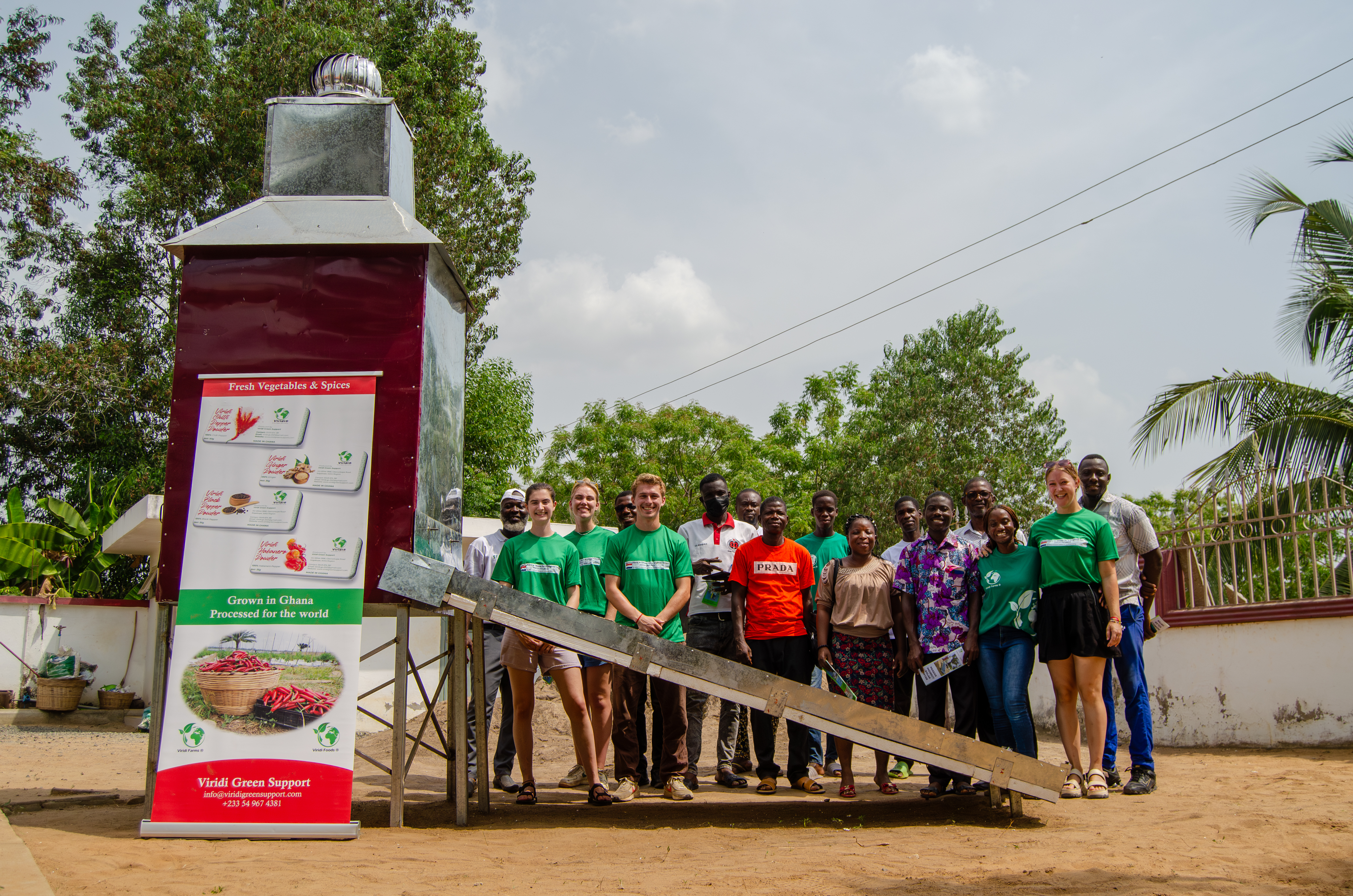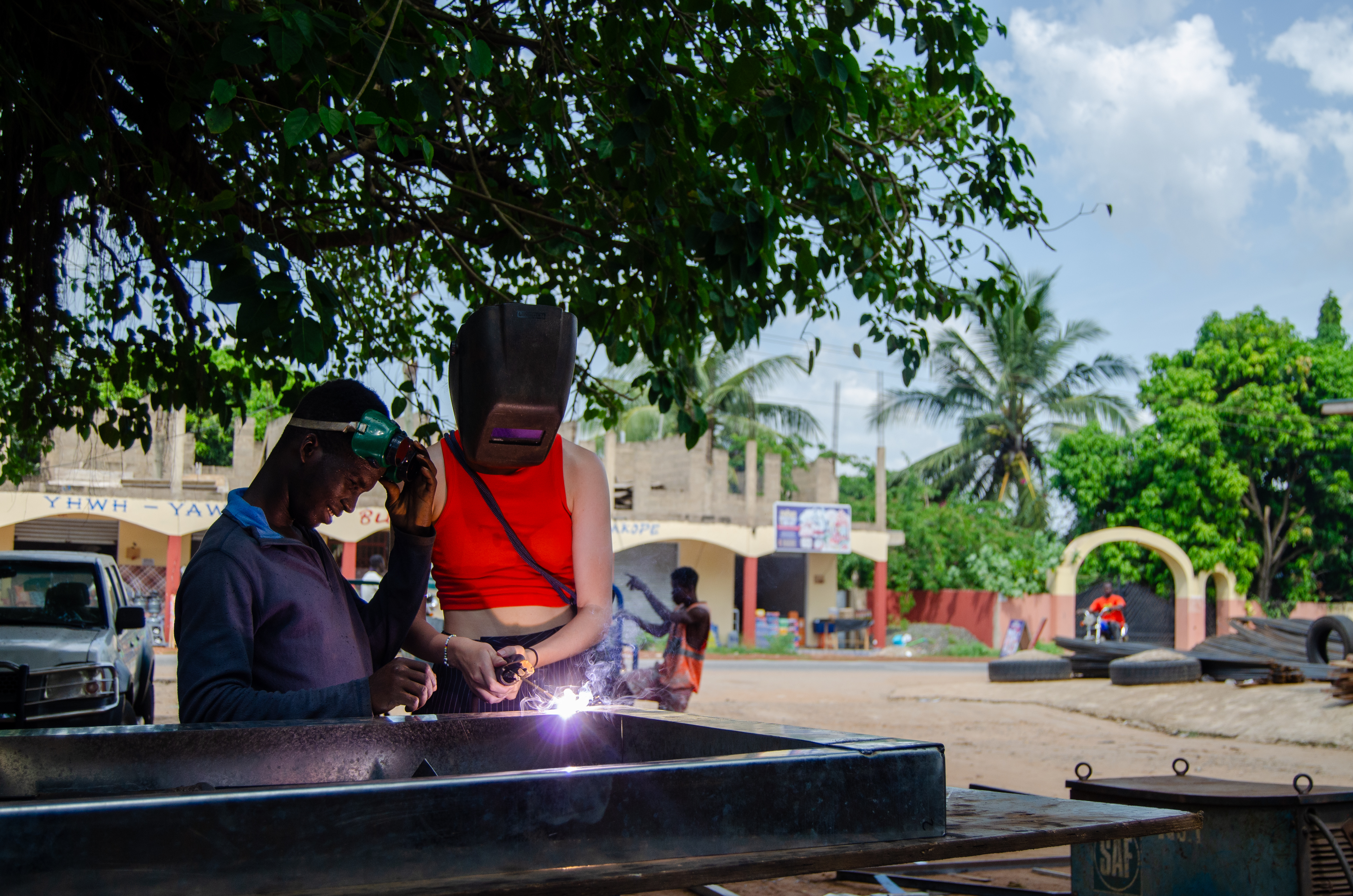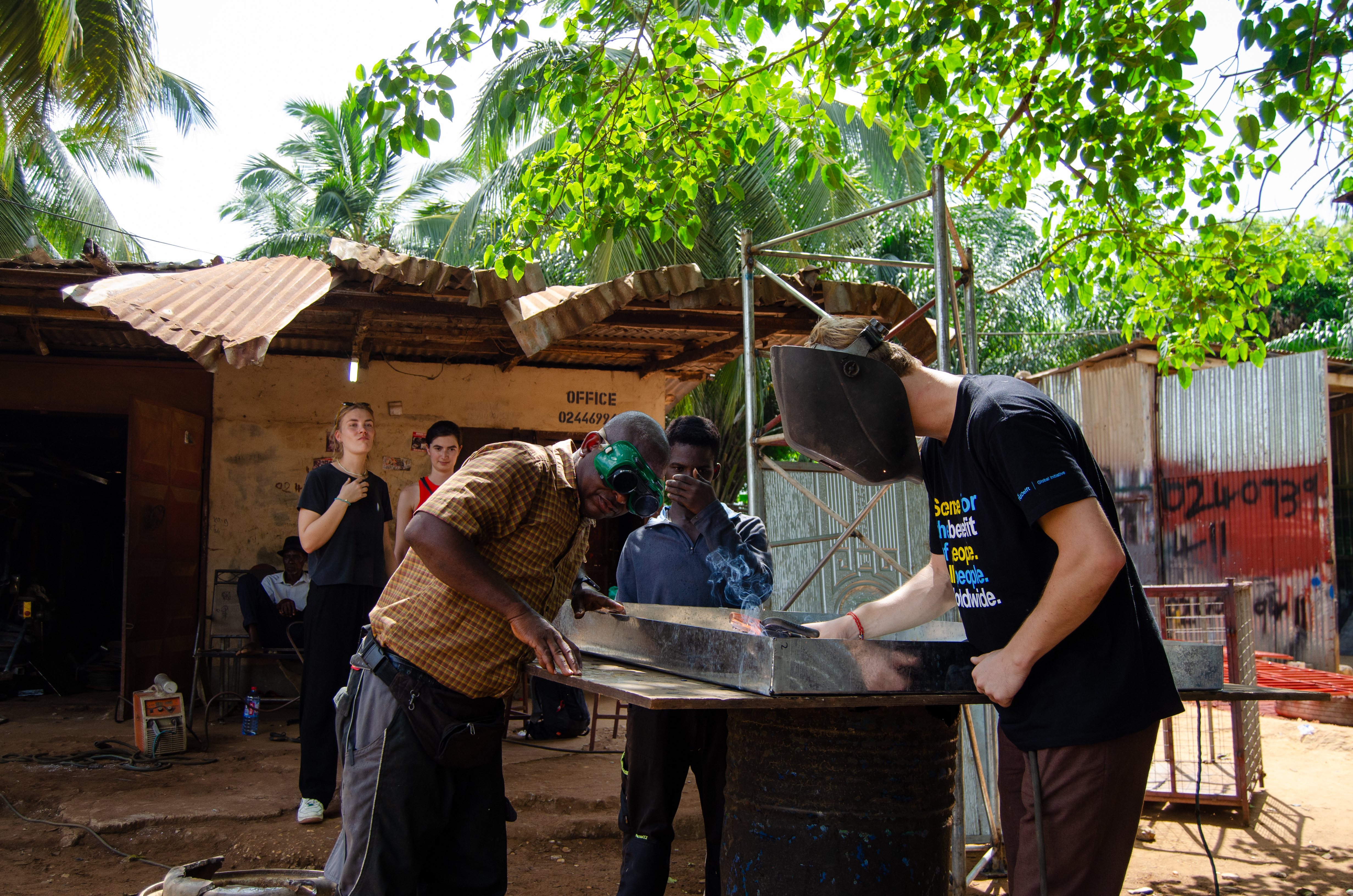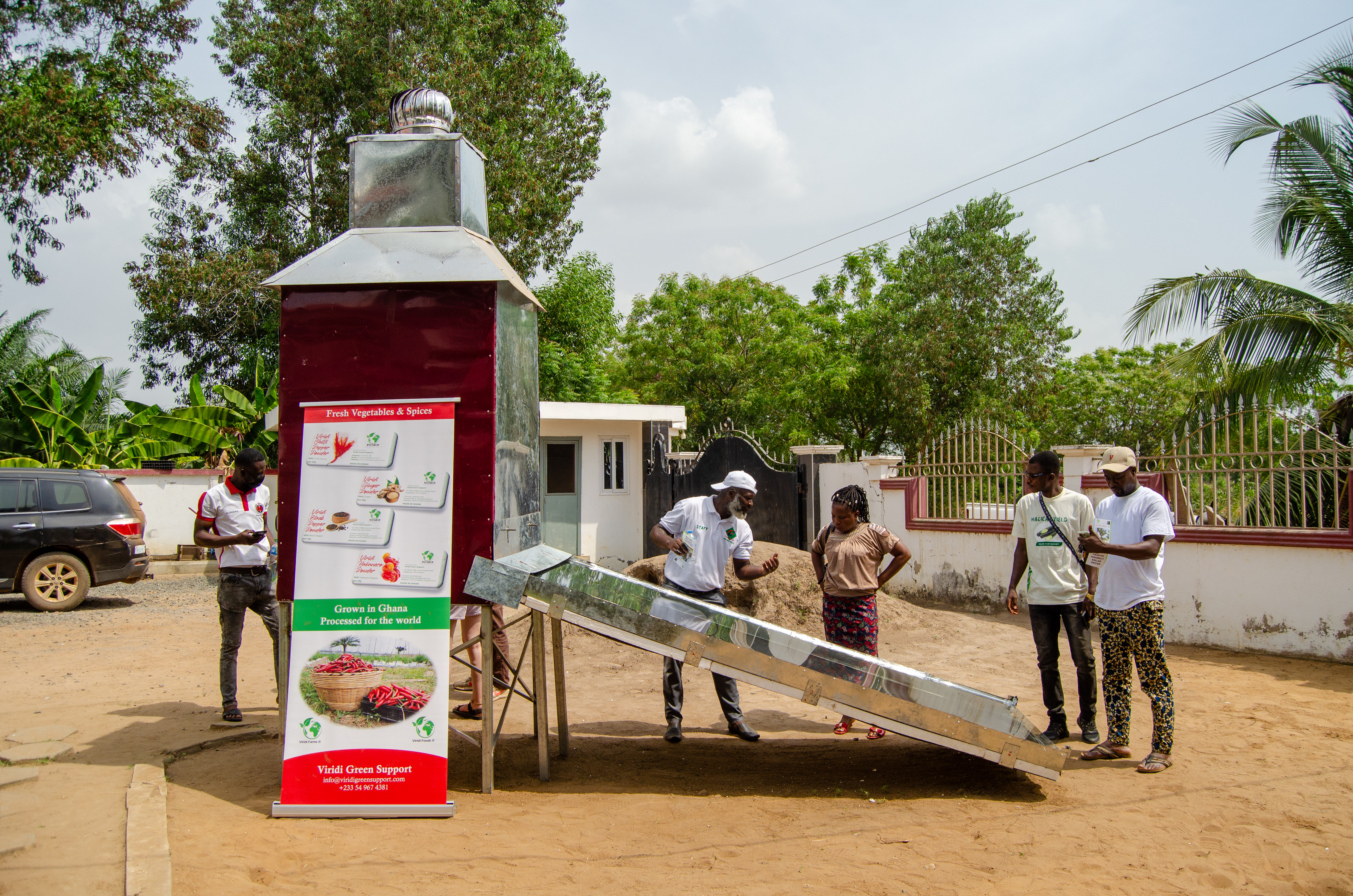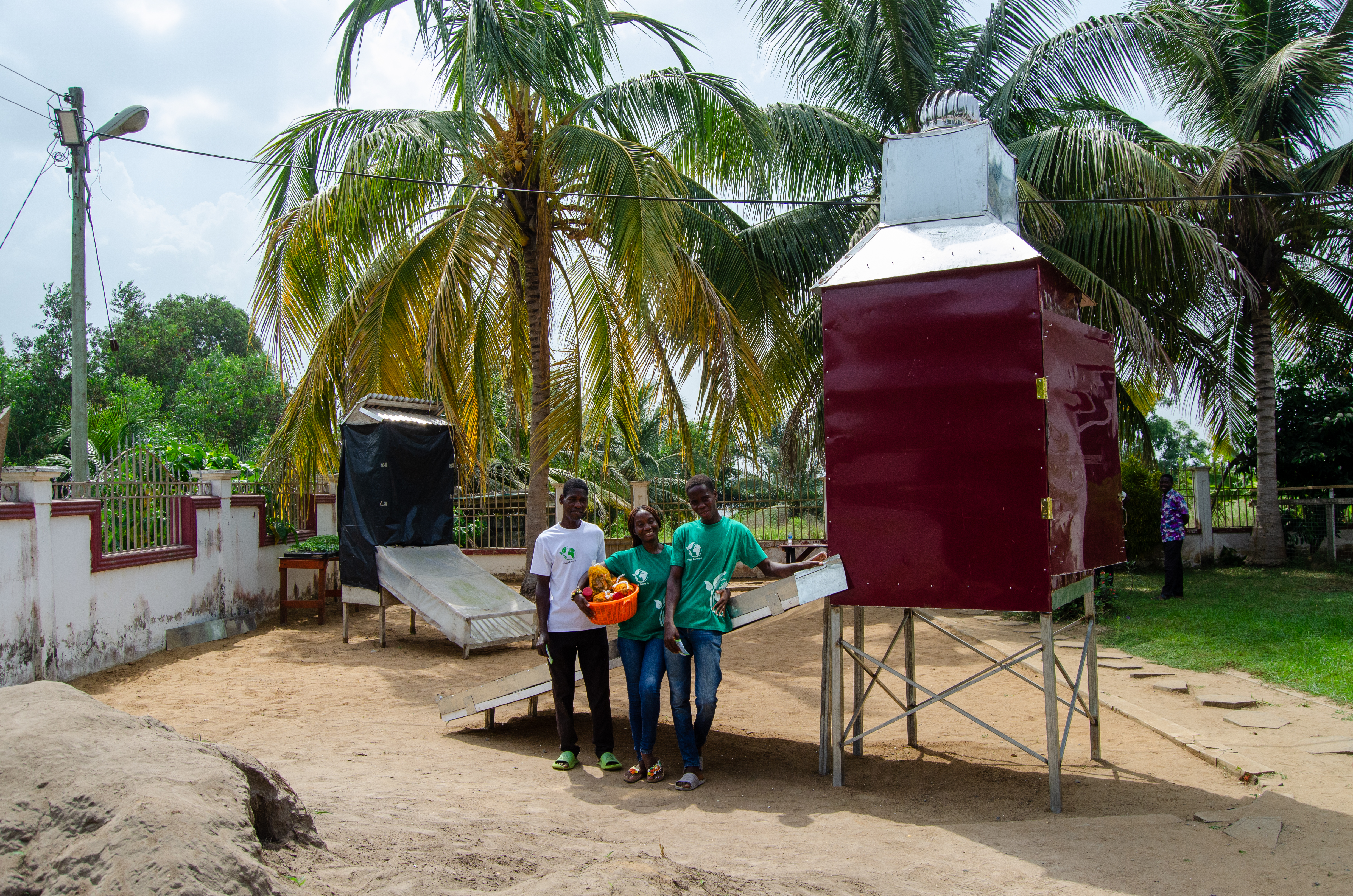Building a Solar Dryer in Ghana
By Sam de Haan, Megan Seker, Robin Smits, and Sophie Storm van ‘s-Gravesande
Enable farmers to experience the benefits of a Post-Harvest Processing Solution to increase the value of a harvest.
We are Gap Design, a group of four Master students of Industrial Design Engineering. In Design XL, we combined the knowledge of the three different masters of IDE to design a solar dryer in Ghana. The project lasted a full semester including a 20-hour weekly workload from The Netherlands, and a 5-week trip to Ghana.
In Ghana up to 50% of the harvested crops can be lost before reaching a customer. This is due to various reasons, one of them being the lack of affordable and reliable post-harvest processing technologies. Post-harvest processing technologies not only have the potential to decrease post-harvest losses, but more importantly, they can increase the profit of a smallholder farmer. With the aim of increasing the value of a harvest, processing technologies were researched. Through the Archipelago Project we were brought into contact with Joy Addai, an ambitious smallholder farmer in the Volta Region of Ghana. She built her own solar drying machine to dry chilli peppers and process it further into chilli powder. This design was taken as a baseline and was to be improved upon. Next to the technological challenges this provided us, our diverse knowledge allowed us to focus on the entrepreneurial, contextual, and agricultural aspects as well. We collaborated with students and staff of Ohawu Agricultural Cllege in Volta region.
We believe this design is a source of inspiration to Ghanaian farmers, showing the country’s capabilities in production of machines and self-sufficiency in the production of foods.
Sam, Megan, Robin & Sophie
Together with local farmers, welders, carpenters, and engineers, we developed the Hulu Dryer. It allows smallholder farmers to dry their fresh produce for preservation or processing into products as flour, spices, and tea. The passive indirect solar dryer works on the solar power provided by the sun and the wind’s energy, eliminating any running costs. The dried product is hygienic and of high quality due to the indirect use of sunlight. The use of different metals increases the product’s lifetime, while keeping it lightweight for transportation.
The Hulu dryer is built for Joy Addai and will be used in the coming (hopefully many) years to create a profitable business. The scarcity of such machines makes it more difficult to forecast its efficiency. Use of the machine in the coming years will provide feedback and show the true impact of the project. Either way, we believe this design will work as a source of inspiration to Ghanaian farmers, showing the country’s capabilities in production of machines and self-sufficiency in the production of foods. We would like to thank Lindsey Schwidder, JC Diehl, Frans Taminiau, Charlotte Struijk, The Archipelago project and their partners, and the incredible people all over Ghana that helped us in making this journey tremendously fun as well as successful.

